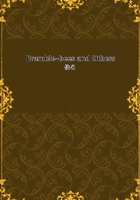
第79章 THE POISON OF THE BEE.(6)
Is not the whole problem subordinate to a condition that cannot be translated into cyphers? As the prey changes, the anatomy changes;and the surgeon always operates with a complete understanding of his subject. The single dagger-thrust is administered to ganglia collected into a common cluster; the manifold thrusts are distributed over the scattered ganglia; of the two thrusts of the Tarantula-huntress, one disarms and the other paralyses. And so with the others: that is to say, the instinct is directed each time by the secrets of the nervous organism. There is a perfect harmony between the operation and the patient's anatomy.
The single stroke of the Scolia is no less wonderful than the repeated strokes of the Ammophila. Each has her appointed game and each slays it by a method as rational as any that our own science could invent. In the presence of this consummate knowledge, which leaves us utterly confounded, what a poor argument is that of 1 + 1 =2! And what is that progress by units to us? The universe is mirrored in a drop of water; universal logic flashes into sight in a single sting.
Besides, push on the pitiful argument. One leads to two, two lead to three. Granted without dispute. And then? We will accept the Scolia as the pioneer, the foundress of the first principles of the art.
The simplicity of her method justifies our supposition. She learns her trade in some way or other, by accident; she knows supremely well how to paralyse her Cetonia-grub with a single dagger-thrust driven into the thorax. One day, through some fortuitous circumstance, or rather by mistake, she takes it into her head to strike two blows. As one is enough for the Cetonia, the repetition was of no value unless there was a change of prey. What was the new victim submitted to the butcher's knife? Apparently, a large Spider, since the Tarantula and the Garden Spider call for two thrusts. And the prentice Scolia, who used at first to sting under the throat, had the skill, at her first attempt, to begin by disarming her adversary and then to go quite low down, almost to the end of the thorax, to strike the vital point. Iam utterly incredulous as to her success. I see her eaten up if her lancet swerves and hits the wrong spot. Let us look impossibility boldly in the face and admit that she succeeds. I then see the offspring, which have no recollection of the fortunate event save through the belly--and then we are postulating that the digestion of the carnivorous larva leaves a trace in the memory of the honey-sipping insect--I see the offspring, I say, obliged to wait at long intervals for that inspired double thrust and obliged to succeed each time under pain of death for them and their descendants. To accept this host of impossibilities exceeds all my faculties of belief. One leads to two, no doubt; the Ssingle blow of the predatory Wasp will never lead to the blow twice delivered.
In order to live, we all require the conditions that enable us to live: this is a truth worthy of the famous axioms of La Palice.
(Jacques de Chabannes, Seigneur de La Palice (circa 1470-1525), was a French captain killed at the battle of Pavia. His soldiers made up in his honour a ballad, two lines of which, translated, run:
Fifteen minutes before he died, He was still alive.
Hence the French expression, une verite de La Palice, meaning an obvious truth.--Translator's Note.)The predatory insects live by their talent. If they do not possess it to perfection, their race is lost. Hidden in the murk of the past ages, the argument based upon the non-existence of fossil instinct is no better able than the others to withstand the light of living realities; it crumbles under the stroke of fate; it vanishes before a La Palice platitude.